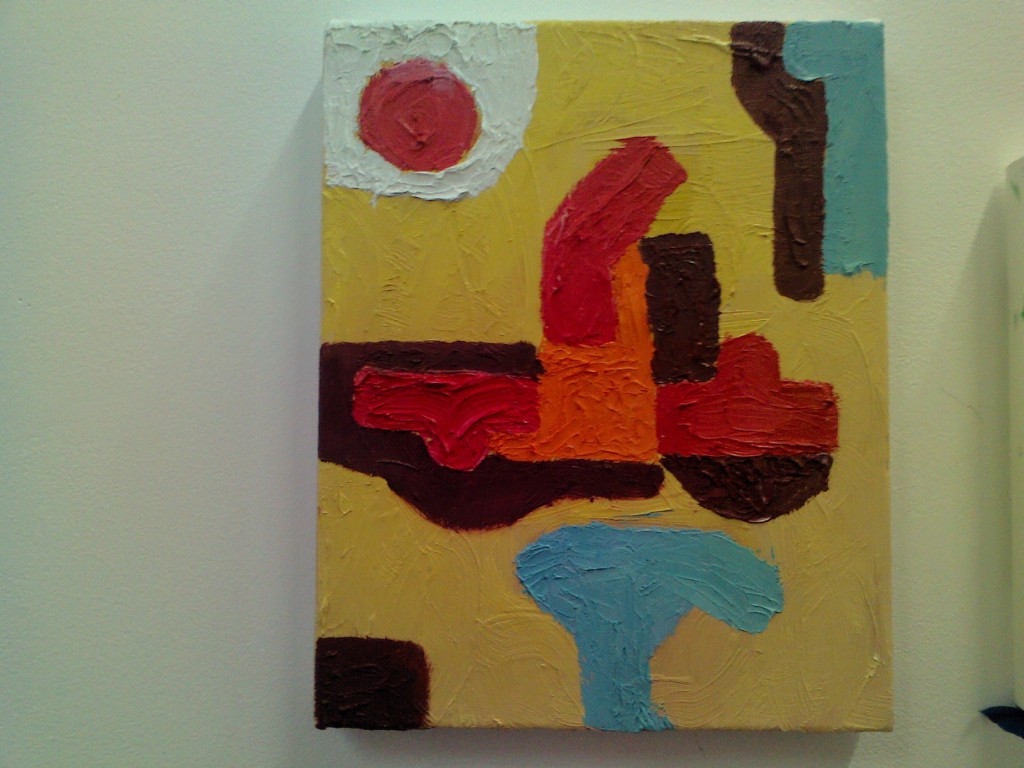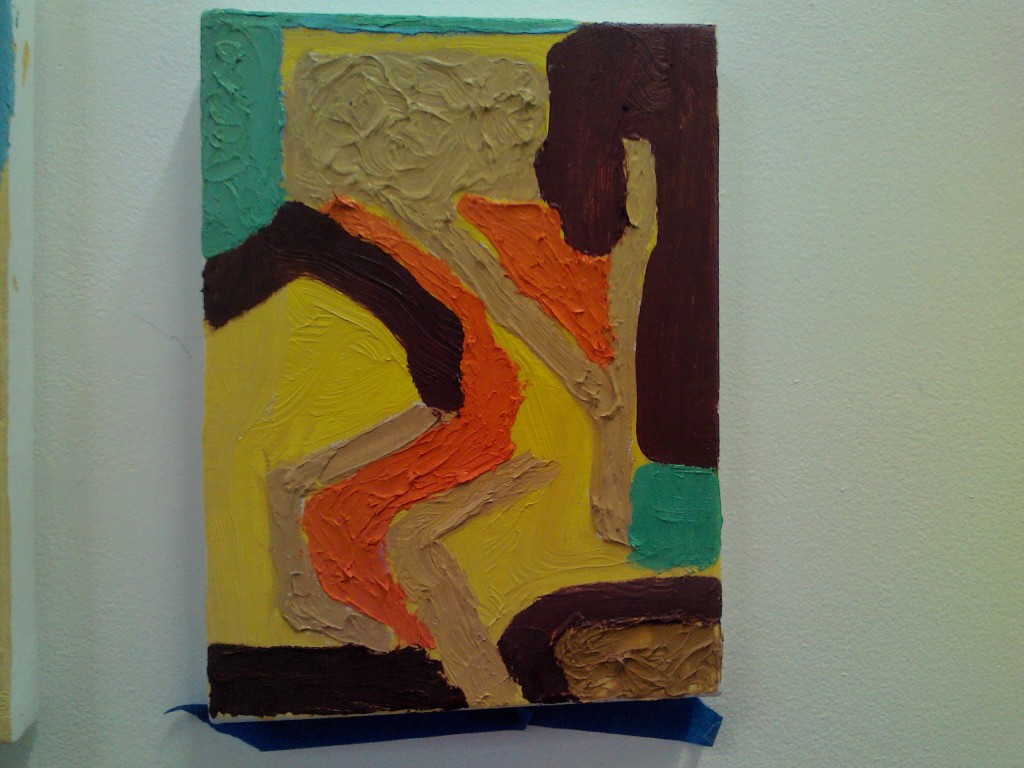About two dozen people showed up at Beyond Baroque on Saturday night to hear Paul Lieber and me read from our books. Chuck Rosenthal led off the evening with a section from a chapter of his novel-in-progress about Trotsky’s murder. He said that this novel was going to be his only work done in the manner of “realism.” As such, the scene he conjured up of duck hunting was exquisitely rendered. Paul Lieber followed with a set of ten poems from his poignant new collection, Interrupted by the Sea; and Karen Kevorkian read from a work-in-progress that exquisitely explored the oscillations of our diverging desires for happiness and pleasure. The air conditioning wasn’t on, and the room had gotten stuffy, so as the evening’s final reader I imposed a brief break on the proceedings to open up the doors and let the audience stretch its legs; then I read eight poems, and talked a bit about my work-in-progress, “The Winnowing of ’47.” When I mentioned that it would probably be my last sustained work as a poet, I could feel a slight stir of surprise in the room, and I suppose I should have clarified the remark. I will certainly not stop writing poetry, but I will be giving renewed attention to my scholarship. If I am given enough longevity, I have at least ten articles on poets that got started as conference papers and need substantial revision. I wish to thank Nancy Grace for her recent support and guidance as I worked on I have, for instance, in the very final stages of an article on the Venice West poetry for a MLA volume on “Teaching the Beat,” edited by Nancy Grace.
As for the work-in-progress, I had hoped to read “Groundprints,” a new piece that I had just finished the day before, but the the length of the evening’s reading precluded a longer piece.
As for finding an outlet for my imaginative energy, here is some very preliminary work. I read a comment by an artist a few years ago that one spends the first decade of one’s career “just pushing the paint around the canvas to see what it can do.” That I will not have a career is fine with me. I would not ever describe my life as a poet as possessing the traits of a career, so this seems like a good way to assure that the poetry I have written will not career into late acclaim. (“Career” once was a widely used variant for “careen,” but that usage started fading around 1920.)

(“When Fate Has No Mercy”)

(“The Quiet Retribution”)
 About Bill Mohr
About Bill Mohr